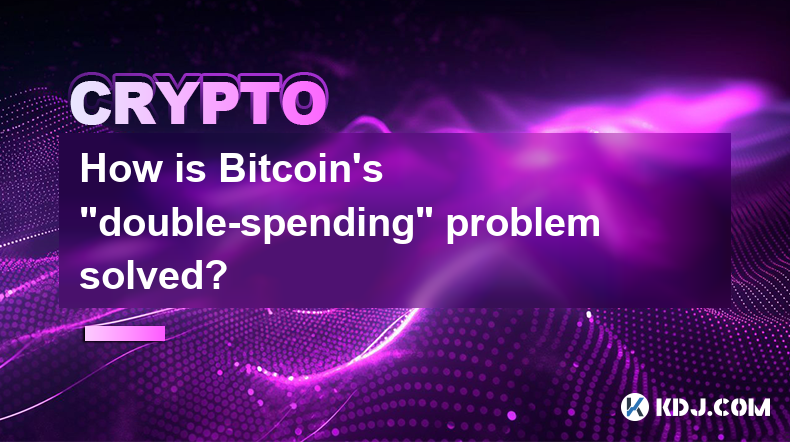-
 Bitcoin
Bitcoin $91,518.7898
-4.46% -
 Ethereum
Ethereum $2,486.1604
-8.96% -
 Tether USDt
Tether USDt $1.0000
-0.03% -
 XRP
XRP $2.2686
-8.99% -
 BNB
BNB $608.9389
-5.43% -
 Solana
Solana $140.3791
-12.56% -
 USDC
USDC $1.0000
0.00% -
 Dogecoin
Dogecoin $0.2110
-9.45% -
 Cardano
Cardano $0.6803
-8.72% -
 TRON
TRON $0.2357
-3.55% -
 Chainlink
Chainlink $14.9554
-11.54% -
 Stellar
Stellar $0.2950
-8.51% -
 Avalanche
Avalanche $21.6769
-10.16% -
 Sui
Sui $2.8167
-15.86% -
 Toncoin
Toncoin $3.4679
-7.84% -
 Litecoin
Litecoin $113.1664
-9.32% -
 UNUS SED LEO
UNUS SED LEO $8.8017
-9.91% -
 Shiba Inu
Shiba Inu $0.0...01377
-8.05% -
 Hedera
Hedera $0.1909
-6.96% -
 MANTRA
MANTRA $7.7669
-8.33% -
 Polkadot
Polkadot $4.3696
-9.36% -
 Hyperliquid
Hyperliquid $19.2277
-12.61% -
 Ethena USDe
Ethena USDe $0.9999
-0.02% -
 Bitcoin Cash
Bitcoin Cash $290.6446
-8.85% -
 Bitget Token
Bitget Token $4.5834
-7.83% -
 Dai
Dai $0.9998
-0.02% -
 Uniswap
Uniswap $7.8223
-10.46% -
 Monero
Monero $228.1069
-2.97% -
 NEAR Protocol
NEAR Protocol $2.9626
-12.13% -
 Pepe
Pepe $0.0...07898
-13.04%
What are the regulatory risks associated with Stader (SD) Coin?
Understanding Stader's regulatory risks and taking appropriate mitigation steps is essential for investors and users to ensure the safety and compliance of their crypto staking activities.
Dec 31, 2024 at 06:29 pm

Key Points:
- Stader (SD) is a decentralized staking platform that allows users to stake their crypto assets and earn rewards.
- Stader's regulatory risks primarily relate to its decentralized nature, the lack of clear regulatory frameworks for staking, and potential security vulnerabilities.
- Understanding these risks and taking appropriate steps to mitigate them is crucial for investors and users of Stader.
Regulatory Risks Associated with Stader (SD) Coin:
1. Decentralized Nature:
- Stader operates as a decentralized platform, meaning it is not subject to direct regulation by any central authority.
- This decentralization can pose challenges for regulators to enforce laws and prevent illicit activities on the platform.
- Governments may take steps to regulate decentralized platforms, which could introduce additional risks for Stader and its users.
2. Lack of Clear Regulatory Frameworks:
- The regulatory landscape for staking digital assets remains largely undefined in many jurisdictions.
- This lack of clear guidelines can create uncertainties for Stader and its users, as the platform's operations may fall into regulatory gray areas.
- Future changes to regulatory frameworks could have significant implications for Stader and its compliance status.
3. Potential Security Vulnerabilities:
- Staking services like Stader involve holding users' digital assets in custody.
- Smart contracts and protocols used by Stader, while secure, may still be subject to vulnerabilities or exploits.
- Cyberattacks or internal breaches could compromise Stader's systems and lead to the loss or theft of users' staked assets.
4. Anti-Money Laundering and Know-Your-Customer (AML/KYC) Compliance:
- Stader is expected to comply with AML/KYC regulations to prevent the platform from being used for illicit activities.
- Implementing robust AML/KYC procedures can be challenging for decentralized platforms, and failure to comply could result in legal penalties.
- Stader may need to find innovative ways to comply with AML/KYC while preserving the decentralized nature of the platform.
5. Tax Implications:
- Staking rewards earned on Stader may be subject to taxation in certain jurisdictions.
- Users need to be aware of their tax obligations and report staking rewards accordingly to avoid potential legal consequences.
- Stader may need to provide tax reporting services or tools to assist users with tax compliance.
FAQs:
Q: Is Stader regulated by any government agency?
A: Stader is currently not regulated by any specific government agency due to its decentralized nature.
Q: Can Stader be used for illegal activities?
A: Stader is committed to preventing illicit activities on its platform through AML/KYC compliance measures. However, the decentralized nature of the platform may make it challenging to completely prevent such activities.
Q: Are Stader users' assets safe?
A: Stader employs security measures to protect users' assets, but the decentralized nature of staking introduces potential vulnerabilities. Users should carefully consider the risks associated with staking and take steps to ensure their assets are adequately secured.
Q: Are staking rewards taxed?
A: Yes, staking rewards may be subject to taxation in certain jurisdictions. Users should be aware of their tax obligations and consult with tax professionals as needed.
Q: How does Stader comply with AML/KYC regulations?
A: Stader may implement AML/KYC procedures, such as user verification, to prevent illicit activities on the platform. However, specific implementation details may vary depending on applicable regulations.
Disclaimer:info@kdj.com
The information provided is not trading advice. kdj.com does not assume any responsibility for any investments made based on the information provided in this article. Cryptocurrencies are highly volatile and it is highly recommended that you invest with caution after thorough research!
If you believe that the content used on this website infringes your copyright, please contact us immediately (info@kdj.com) and we will delete it promptly.
- The Best Cryptos to Buy Right Now: Arctic Pablo Coin, Official Melania Meme, and Bonk Lead the Pack
- 2025-02-25 14:30:29
- The Best Meme Coins to Buy Now: Arctic Pablo Coin (APC), Popcat, Peanut the Squirrel, and OFFICIAL TRUMP
- 2025-02-25 14:30:29
- BitMart Research: BNB Chain's Strategic Initiatives and Growing Influence in the MEME Sector
- 2025-02-25 14:30:29
- Sam Bankman-Fried Tweets From Prison, Briefly Spiking FTX Token FTT
- 2025-02-25 14:30:29
- Can Ripple’s XRP Overcome Market Forces and Rebound?
- 2025-02-25 14:30:29
- 1965 Chevrolet Corvair Corsa Turbo
- 2025-02-25 14:30:29
Related knowledge

What are the long-term investment risks of Bitcoin?
Feb 22,2025 at 05:30pm
Key PointsVolatility and price fluctuationsRegulatory uncertaintySecurity risksCompetition from altcoinsMarket manipulation and scamsTransaction feesEnvironmental concernsLong-Term Investment Risks of BitcoinVolatility and Price FluctuationsBitcoin's high volatility is a double-edged sword. While it has the potential to generate substantial returns, it ...

What are the main contents of Bitcoin's "white paper"?
Feb 21,2025 at 04:36am
Key Points:Understanding Bitcoin's Genesis: The White Paper's IntroductionA Decentralized Digital Currency: Bitcoin's Core ConceptBlockchain Technology: The Foundation of Bitcoin's Immutable LedgerProof-of-Work: Securing Bitcoin's NetworkThe Design of Bitcoin's Currency: Issuance, Scarcity, and DivisibilityBitcoin's Potential Applications and Future Pro...

How does Bitcoin's distributed ledger ensure consistency?
Feb 22,2025 at 10:06pm
Key Points:Bitcoin employs a distributed ledger, also known as a blockchain, to maintain a tamper-proof and consistent record of transactions.The blockchain is a decentralized network of computers that collectively validate and store transaction data.Bitcoin's distributed ledger ensures consistency through consensus mechanisms and cryptographic algorith...

What does the Cryptographic Fundamentals of Bitcoin consist of?
Feb 21,2025 at 12:06pm
Key PointsUnderstanding the cryptographic algorithms used in BitcoinFamiliarization with the Bitcoin blockchain and its underlying mechanicsExamination of the security measures that protect Bitcoin from attackAnalysis of the decentralized nature of Bitcoin and its implicationsDiscussion of the scalability and transaction fee issues associated with Bitco...

What is Bitcoin's relationship with blockchain technology?
Feb 22,2025 at 07:00pm
Bitcoin's Intertwined Relationship with Blockchain TechnologyKey Points:Definition of blockchain technology and its decentralized natureBitcoin's utilization of blockchain for secure and immutable transactionsThe role of blockchain in verifying and confirming transactionsEvolution of blockchain technology beyond Bitcoin's cryptocurrency applicationsUnde...

How is Bitcoin's "double-spending" problem solved?
Feb 23,2025 at 02:54am
Key Points:The double-spending problem refers to the potential for a digital currency transaction to be reversed, allowing the same funds to be spent multiple times.Bitcoin solves this problem through the use of a decentralized blockchain, a public ledger that records all transactions permanently and securely.The immutability and transparency of the blo...

What are the long-term investment risks of Bitcoin?
Feb 22,2025 at 05:30pm
Key PointsVolatility and price fluctuationsRegulatory uncertaintySecurity risksCompetition from altcoinsMarket manipulation and scamsTransaction feesEnvironmental concernsLong-Term Investment Risks of BitcoinVolatility and Price FluctuationsBitcoin's high volatility is a double-edged sword. While it has the potential to generate substantial returns, it ...

What are the main contents of Bitcoin's "white paper"?
Feb 21,2025 at 04:36am
Key Points:Understanding Bitcoin's Genesis: The White Paper's IntroductionA Decentralized Digital Currency: Bitcoin's Core ConceptBlockchain Technology: The Foundation of Bitcoin's Immutable LedgerProof-of-Work: Securing Bitcoin's NetworkThe Design of Bitcoin's Currency: Issuance, Scarcity, and DivisibilityBitcoin's Potential Applications and Future Pro...

How does Bitcoin's distributed ledger ensure consistency?
Feb 22,2025 at 10:06pm
Key Points:Bitcoin employs a distributed ledger, also known as a blockchain, to maintain a tamper-proof and consistent record of transactions.The blockchain is a decentralized network of computers that collectively validate and store transaction data.Bitcoin's distributed ledger ensures consistency through consensus mechanisms and cryptographic algorith...

What does the Cryptographic Fundamentals of Bitcoin consist of?
Feb 21,2025 at 12:06pm
Key PointsUnderstanding the cryptographic algorithms used in BitcoinFamiliarization with the Bitcoin blockchain and its underlying mechanicsExamination of the security measures that protect Bitcoin from attackAnalysis of the decentralized nature of Bitcoin and its implicationsDiscussion of the scalability and transaction fee issues associated with Bitco...

What is Bitcoin's relationship with blockchain technology?
Feb 22,2025 at 07:00pm
Bitcoin's Intertwined Relationship with Blockchain TechnologyKey Points:Definition of blockchain technology and its decentralized natureBitcoin's utilization of blockchain for secure and immutable transactionsThe role of blockchain in verifying and confirming transactionsEvolution of blockchain technology beyond Bitcoin's cryptocurrency applicationsUnde...

How is Bitcoin's "double-spending" problem solved?
Feb 23,2025 at 02:54am
Key Points:The double-spending problem refers to the potential for a digital currency transaction to be reversed, allowing the same funds to be spent multiple times.Bitcoin solves this problem through the use of a decentralized blockchain, a public ledger that records all transactions permanently and securely.The immutability and transparency of the blo...
See all articles

















































































